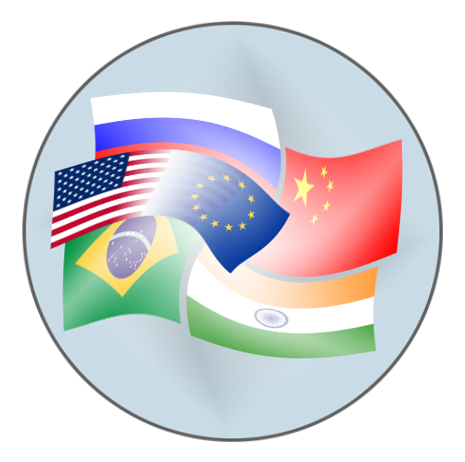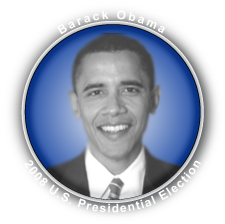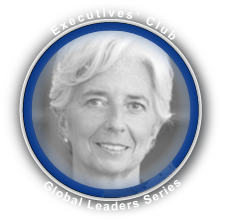At first, it seemed that the machine had tilted, its levers, bells and flippers having hit some kind of glitch, causing us to lose the ball and the bonus points.
 As the curtain rises on the second decade of the twenty-first century, we will see that the machine is actually fine, but it’s become a different game. Quite entirely. To put it mildly, “the economy” is proving to be quite a drama, its pungence largely dependent on where your company or career is wired into it. Although it is quite frowned upon in the U.S. to admit despair, some pundits have even flirted with the moniker, “The Great Recession” to describe the crisis, a faint nod to the Great Depression of the 1930s, but this comparison is off-base. As I have argued for some time, the 2007-2010 “financial crisis” has played a mere overture to the real story, a transformation of the global “economic architecture.” I first heard this deft phrase from His Excellency Shri Kamal Nath, India’s very diplomatic Minister of Commerce in 2008 (coverage here). As the curtain rises on the second decade of the twenty-first century, we will see that the machine is actually fine, but it’s become a different game. Quite entirely. To put it mildly, “the economy” is proving to be quite a drama, its pungence largely dependent on where your company or career is wired into it. Although it is quite frowned upon in the U.S. to admit despair, some pundits have even flirted with the moniker, “The Great Recession” to describe the crisis, a faint nod to the Great Depression of the 1930s, but this comparison is off-base. As I have argued for some time, the 2007-2010 “financial crisis” has played a mere overture to the real story, a transformation of the global “economic architecture.” I first heard this deft phrase from His Excellency Shri Kamal Nath, India’s very diplomatic Minister of Commerce in 2008 (coverage here).
[…]
The WSJ succeeded in charging for content because their content was traditionally part of their customers’ workstreams. When your livelihood depends on something, you pay. Most “news” and media entertains, it has little financial impact. […]
The use of social networking sites will increase; people will shift to a strong family focus because they will be poorer. Older workers will get computer literate due to going back to work and working longer. […]
Why 2009’s economic disruption will prove more pervasive and protracted than many experts think—and how you can guide you company. Guidance on using social networks to become more competitive and enhance your survival. […]
Reflections on the collapse of Chicago’s legacy publishing economy: Britannica, Encarta, Wikipedia, Chicago Tribune, Chicago Sun-Times […]
Live-blogging the MIT Enterprise Forum’s 2009 economic outlook from Chicago […]
Cites International Mindset, Judgment and Flexibility—Ambiguity and Global Transformation Form the Backdrop
 The 2008 U.S. presidential election has been the most dramatic in recent history by any measure. Converging economic, cultural and political issues are increasing the level of discomfort among voters and raising the stakes. In endorsing Barack Obama, I have considered the candidates in several dimensions, but my primary perspective has been that of a management consultant. The United States is a client in crisis, and I have asked myself, “What kind of leader does the country need, given the challenges it faces?” Barack Obama is my prescription, although there may be unwelcome side effects. If circumstances were different, I might well have favored John McCain. The 2008 U.S. presidential election has been the most dramatic in recent history by any measure. Converging economic, cultural and political issues are increasing the level of discomfort among voters and raising the stakes. In endorsing Barack Obama, I have considered the candidates in several dimensions, but my primary perspective has been that of a management consultant. The United States is a client in crisis, and I have asked myself, “What kind of leader does the country need, given the challenges it faces?” Barack Obama is my prescription, although there may be unwelcome side effects. If circumstances were different, I might well have favored John McCain.
[…]
Web 2.0 and the Mergers and Acquisitions Industry at the AM&AA reveals how digital social networks are affecting mergers and acquisitions in the mid-market
Reports of “Character Building” Market—Significant Parallels with High Tech Bust—Plus, the Emerging Web 2.0 Vein
 The sub-prime induced correction of the U.S. financial sector has changed the context around M&A during the last year, and mergers and acquisitions experts met last week to share success stories, lessons learned and admonitions at the Alliance of Mergers & Acquisition Advisors Summer Conference July 22-25, 2008 at Chicago’s Wyndham Hotel. I was asked to present a new talk, “Leveraging a Web 2.0 Ecosystem to Grow Your Business,” and I had the opportunity to attend some of the other sessions. I’ll summarize their key points before adding some thoughts on the promise that Web 2.0 and social networks bring to deal marketing due to significantly decreased transaction costs. The sub-prime induced correction of the U.S. financial sector has changed the context around M&A during the last year, and mergers and acquisitions experts met last week to share success stories, lessons learned and admonitions at the Alliance of Mergers & Acquisition Advisors Summer Conference July 22-25, 2008 at Chicago’s Wyndham Hotel. I was asked to present a new talk, “Leveraging a Web 2.0 Ecosystem to Grow Your Business,” and I had the opportunity to attend some of the other sessions. I’ll summarize their key points before adding some thoughts on the promise that Web 2.0 and social networks bring to deal marketing due to significantly decreased transaction costs.
AM&AA members hail from all parts of a rich ecosystem of investment bankers, attorneys, private equity, brokers, intermediaries, CPAs and others who specialize in every […]
French Finance Minister Declares French rEvolution in Economic Policy is a real-time case study with lessons for G7 Knowledge Economy transition—”Courage” to the rats—A new French realism?
 Illinois leaders were addressed by Her Excellency Christine Lagarde, Economy, Industry and Employment Minister, Republic of France at the special luncheon held in her honor by the Executives’ Club of Chicago at the Westin on 23 May 2008. Attending were Chicago Mayor Richard M. and Maggie Daley, a French delegation that included the Ambassador of France to the U.S. Pierre Vimont, the Head of Cabinet Christian Dufour, David Appia, Minister Counselor for Economic and Commercial Affairs, and numerous executives of Chicago Fortune 500 firms. Illinois leaders were addressed by Her Excellency Christine Lagarde, Economy, Industry and Employment Minister, Republic of France at the special luncheon held in her honor by the Executives’ Club of Chicago at the Westin on 23 May 2008. Attending were Chicago Mayor Richard M. and Maggie Daley, a French delegation that included the Ambassador of France to the U.S. Pierre Vimont, the Head of Cabinet Christian Dufour, David Appia, Minister Counselor for Economic and Commercial Affairs, and numerous executives of Chicago Fortune 500 firms.
If one were not listening attentively and willing to question stereotypes, it would have been too easy miss this intriguing story. However, as in all things “2.0,” profound change manifests slowly at first, and I detected a glimmer of disruption in France’s status quo. Having lived in West Berlin surrounded by the concrete reality of a wall that subsequently, unbelievably, came down, I ask myself, “What if France were […]
Geography 3.0, What It Is and What It Means predicts a new synthesis in the Knowledge Economy—fast forward to the past—Plus, the fire
 Noodles are largely driven by intuition and holistic mental doodling, and this one has been simmering a long time*. I believe that there is profound meaning in virtual and literal “mobility,” and I’ll explore its significance in terms geography and human relationships. Geography has always had a profound impact on how humans have lived and the organizations in which we have lived, and when its meaning shifts, our lives are transformed. This is of paramount importance because human relationships are currently transitioning from geography-based to interest-based. Many governments and businesses harbor business rules that assume geography-based relationships, and, unless they appreciate the shift to interest-based relationships, they will experience disruption’s spin cycle. Lose a turn. Don’t pass go ,^) Noodles are largely driven by intuition and holistic mental doodling, and this one has been simmering a long time*. I believe that there is profound meaning in virtual and literal “mobility,” and I’ll explore its significance in terms geography and human relationships. Geography has always had a profound impact on how humans have lived and the organizations in which we have lived, and when its meaning shifts, our lives are transformed. This is of paramount importance because human relationships are currently transitioning from geography-based to interest-based. Many governments and businesses harbor business rules that assume geography-based relationships, and, unless they appreciate the shift to interest-based relationships, they will experience disruption’s spin cycle. Lose a turn. Don’t pass go ,^)
Before exploring how these things will unfold in Part II, let’s review three geographies and four economies here in Part I…
[…]
|
|
 As the curtain rises on the second decade of the twenty-first century, we will see that the machine is actually fine, but it’s become a different game. Quite entirely. To put it mildly, “the economy” is proving to be quite a drama, its pungence largely dependent on where your company or career is wired into it. Although it is quite frowned upon in the U.S. to admit despair, some pundits have even flirted with the moniker, “The Great Recession” to describe the crisis, a faint nod to the Great Depression of the 1930s, but this comparison is off-base. As I have argued for some time, the 2007-2010 “financial crisis” has played a mere overture to the real story, a transformation of the global “economic architecture.” I first heard this deft phrase from His Excellency Shri Kamal Nath, India’s very diplomatic Minister of Commerce in 2008 (coverage here).
As the curtain rises on the second decade of the twenty-first century, we will see that the machine is actually fine, but it’s become a different game. Quite entirely. To put it mildly, “the economy” is proving to be quite a drama, its pungence largely dependent on where your company or career is wired into it. Although it is quite frowned upon in the U.S. to admit despair, some pundits have even flirted with the moniker, “The Great Recession” to describe the crisis, a faint nod to the Great Depression of the 1930s, but this comparison is off-base. As I have argued for some time, the 2007-2010 “financial crisis” has played a mere overture to the real story, a transformation of the global “economic architecture.” I first heard this deft phrase from His Excellency Shri Kamal Nath, India’s very diplomatic Minister of Commerce in 2008 (coverage here).
 The 2008 U.S. presidential election has been the most dramatic in recent history by any measure. Converging economic, cultural and political issues are increasing the level of discomfort among voters and raising the stakes. In endorsing Barack Obama, I have considered the candidates in several dimensions, but my primary perspective has been that of a management consultant. The United States is a client in crisis, and I have asked myself, “What kind of leader does the country need, given the challenges it faces?” Barack Obama is my prescription, although there may be unwelcome side effects. If circumstances were different, I might well have favored John McCain.
The 2008 U.S. presidential election has been the most dramatic in recent history by any measure. Converging economic, cultural and political issues are increasing the level of discomfort among voters and raising the stakes. In endorsing Barack Obama, I have considered the candidates in several dimensions, but my primary perspective has been that of a management consultant. The United States is a client in crisis, and I have asked myself, “What kind of leader does the country need, given the challenges it faces?” Barack Obama is my prescription, although there may be unwelcome side effects. If circumstances were different, I might well have favored John McCain. The sub-prime induced correction of the U.S. financial sector has changed the context around M&A during the last year, and mergers and acquisitions experts met last week to share success stories, lessons learned and admonitions at the Alliance of Mergers & Acquisition Advisors Summer Conference July 22-25, 2008 at Chicago’s Wyndham Hotel. I was asked to present a new talk, “Leveraging a Web 2.0 Ecosystem to Grow Your Business,” and I had the opportunity to attend some of the other sessions. I’ll summarize their key points before adding some thoughts on the promise that Web 2.0 and social networks bring to deal marketing due to significantly decreased transaction costs.
The sub-prime induced correction of the U.S. financial sector has changed the context around M&A during the last year, and mergers and acquisitions experts met last week to share success stories, lessons learned and admonitions at the Alliance of Mergers & Acquisition Advisors Summer Conference July 22-25, 2008 at Chicago’s Wyndham Hotel. I was asked to present a new talk, “Leveraging a Web 2.0 Ecosystem to Grow Your Business,” and I had the opportunity to attend some of the other sessions. I’ll summarize their key points before adding some thoughts on the promise that Web 2.0 and social networks bring to deal marketing due to significantly decreased transaction costs. Illinois leaders were addressed by Her Excellency Christine Lagarde, Economy, Industry and Employment Minister, Republic of France at the special luncheon held in her honor by the Executives’ Club of Chicago at the Westin on 23 May 2008. Attending were Chicago Mayor Richard M. and Maggie Daley, a French delegation that included the Ambassador of France to the U.S. Pierre Vimont, the Head of Cabinet Christian Dufour, David Appia, Minister Counselor for Economic and Commercial Affairs, and numerous executives of Chicago Fortune 500 firms.
Illinois leaders were addressed by Her Excellency Christine Lagarde, Economy, Industry and Employment Minister, Republic of France at the special luncheon held in her honor by the Executives’ Club of Chicago at the Westin on 23 May 2008. Attending were Chicago Mayor Richard M. and Maggie Daley, a French delegation that included the Ambassador of France to the U.S. Pierre Vimont, the Head of Cabinet Christian Dufour, David Appia, Minister Counselor for Economic and Commercial Affairs, and numerous executives of Chicago Fortune 500 firms. Noodles are largely driven by intuition and holistic mental doodling, and this one has been simmering a long time*. I believe that there is profound meaning in virtual and literal “mobility,” and I’ll explore its significance in terms geography and human relationships. Geography has always had a profound impact on how humans have lived and the organizations in which we have lived, and when its meaning shifts, our lives are transformed. This is of paramount importance because human relationships are currently transitioning from geography-based to interest-based. Many governments and businesses harbor business rules that assume geography-based relationships, and, unless they appreciate the shift to interest-based relationships, they will experience disruption’s spin cycle. Lose a turn. Don’t pass go ,^)
Noodles are largely driven by intuition and holistic mental doodling, and this one has been simmering a long time*. I believe that there is profound meaning in virtual and literal “mobility,” and I’ll explore its significance in terms geography and human relationships. Geography has always had a profound impact on how humans have lived and the organizations in which we have lived, and when its meaning shifts, our lives are transformed. This is of paramount importance because human relationships are currently transitioning from geography-based to interest-based. Many governments and businesses harbor business rules that assume geography-based relationships, and, unless they appreciate the shift to interest-based relationships, they will experience disruption’s spin cycle. Lose a turn. Don’t pass go ,^)